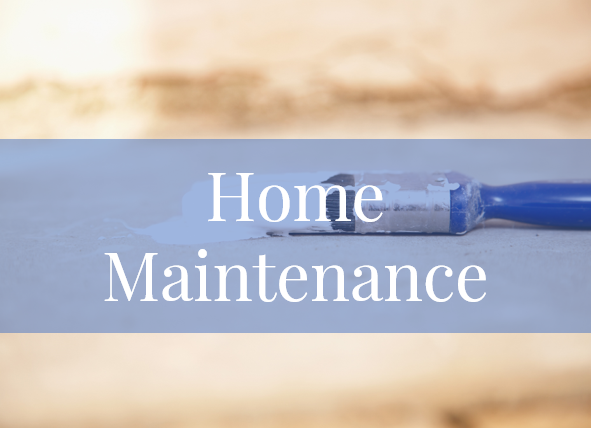How To Choose a Reputable Contractor
/Asking the right questions and knowing what to look for in a good contractor can make the difference between a successful renovation and a disaster. Consider the tips below when interviewing different contractors for your projects.
Prefer to listen?
Get Prepared Before You Start Calling Contractors
Know what you want before you get estimates. Start with a plan and some ideas. You’ll get a more accurate estimate if you can be very specific about what you want done and the materials you would like to use to make it happen. For example, do you want quartz or laminate countertops for your kitchen? Do you want a free-standing tub and separate shower for your bathroom, or just an alcove tub and shower in one?
Ask Your Friends for Referrals
Ask friends, relatives, and co-workers for references. People in your neighbourhood who have done similar projects are your best sources. If you know people in the building trades, ask them, too. Employees of local hardware stores may also be able to provide referrals.
Don’t Get Just One
Interview at least three contractors, even if it's just over the phone at first. You should get a pretty good feel for whether that person is suitable to work with. When you decide who you want to get estimates from, compare bids and make sure each one includes the same materials and the same tasks, so you’re comparing apples to apples.
If They Can Start Right Away, Walk Away From Them
Expect a contractor to be too busy to start right away. The best people are the busy ones. Think of it this way: if you went to a restaurant on a Saturday night and only one or two people were there enjoying a meal, what would you think? You might think that the restaurant wasn’t very good, right? The same applies to contractors. The great ones are booked at least several weeks or even months ahead, so if a contractor says he can start your large project on Monday, you’ve got to ask why he isn’t very busy.
Does the Contractor Have Their Own Team, or Do They Subcontract It Out?
Ask what work will be done by the contractor’s employees and what work will be done by subcontractors. Ask for an employee list to make sure the contractor really has the employees he says he has and won’t be using casual labour hired off the street. Keep in mind that general contractors who sub out most of the work usually come with a higher price tag. As they need to make a profit off the subs, you will usually pay a higher price for this type of contractor. The other disadvantage of a general contractor is that the timing of your project is at the whim of the subcontractor’s schedule. When you hire a company that uses their own employees for most or all of the work, you have their entire team available all the time. To meet all of the team members at Multi Trade Building Services, click here
Choose the Right Contractor for the Right Job.
Choose the right contractor for the right project. Someone who did a good job tiling your neighbour’s bathroom isn’t necessarily the right person to build an addition to your home. Just because a contractor says they can do something doesn’t mean they are experts in that area. Many contractors fancy themselves capable of doing all jobs. However, most have an area that they are experts in. Make sure you know what that area is before you hire them for the wrong job.
Check Documents
Check licenses and WSIB compliance, and ensure they have at least $2,000,000 in liability insurance. Ask if the plumbing work is being done by a licensed plumber, and ask to see their Ontario College of Trades certificate.
If you are having any electrical work done, ensure they are licensed electrical contractors registered with the Electrical Safety Authority. Just because someone is a Licensed Electrician doesn’t mean they can legally do work at your home. The company must be a registered Licensed Electrical Contractor with a Master Electrician on staff. They should be able to tell you their ECRA/ESA License number. The one for Multi Trade Building Services is 7005727. You can go onto the ESA website, type in their information and find them on the website. If they aren’t listed there, they aren't legally able to do electrical work in your home.
Check References
Always check the references that the contractor gives you. Call them and even ask if you can visit their home to see the work that was completed. Anyone can show you photos of work they’ve done. There are lots of photos on the internet that they can download and call their own. Go visit the references and ask the right questions: Did they show up on time? Did they stay on site until the job was complete? Were they clean and tidy? You get the idea. You will learn quickly whether you’re talking to an actual client or the contractor’s uncle.
Get a Contract
Once you’ve settled on your contractor of choice, make sure you get a detailed, signed contract. At Multi Trade Building Services, we use a standard Canada Mortgage and Housing Corporation (CMHC) renovation contract. It is very detailed and contains a specific outline of the work that will be done, the agreed-upon price, and a payment schedule. Only sign the contract once you’ve had a chance to review it. Make sure that there is at least a 1-year warranty on their work and that it clearly stipulates this on the contract. It should also stipulate how the contractor wants you to notify him of any deficiencies (e.g., in writing, by phone, etc.).
Payment Schedules
Do NOT pay more than a 10% deposit up front before work actually begins on site. The only exception to this is for kitchen cabinets. Normally, 50% of the cost of the cabinets will be required prior to the start of manufacturing. Do not allow your contractor to convince you that he needs a 50% deposit for regular renovations. At Multi Trade Building Services, we ask for 10% upfront to show us you are committed to the project, and then nothing more until the day work begins at your home.
Set the Ground Rules
Negotiate ground rules. Discuss what hours the contractor can work at your home, what kind of notice you’ll get, what bathroom the workers will use, and what will be cleaned up at the end of every workday. Make sure everyone knows exactly what is expected of them. Your contractor may have requests for you as well. For example, if they are finishing your basement and you currently use it for storage, you will need to clear out most of your boxes. Also, you will likely be responsible for clearing the driveway of snow in the winter months. If you leave for work early, make sure you’re up early enough to shovel the driveway before you leave. Most contractors will charge you a fee if the snow prevents them from gaining easy access to your home.
Final Payment
Don’t make the final payment until the job is 100 percent complete. Contractors are notorious for finishing most of the job and then moving on before they get to the final details. At least 10% of the total cost of the job should remain to be paid at the end. Do a thorough walk-through to ensure everything on the contract has been fulfilled.
You Get What You Pay For
Perhaps the best advice I can give you is: You Get What You Pay For. Far too often, we hear horror stories about people who hired someone because they offered a lower price. When it comes to renovations to your home—your single biggest investment—you should NEVER hire someone because they offer the cheapest price. It’s not about price. It’s about quality! And sometimes, it matters even more who the people are that will be working in your home. Are they courteous and polite? Are they clean and professional-looking? Do they truly seem to care about you and your home? Don’t hire the lowest-priced contractor. Hire the one that you feel comfortable with and would welcome into your home. After all, they are going to be in your home for 40 hours per week until the job is done.




























